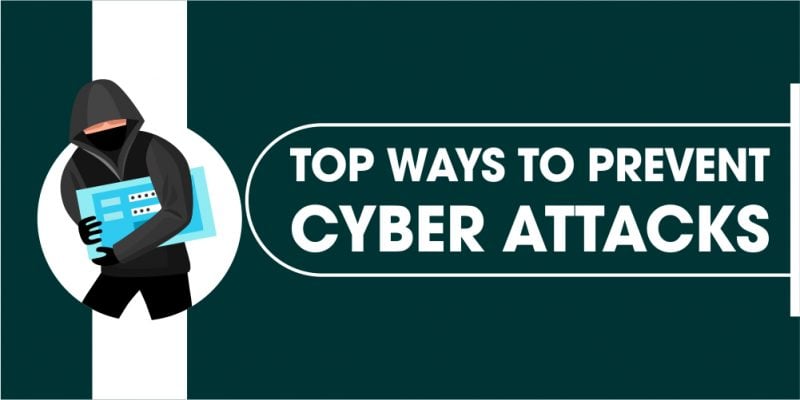Top Ways to Prevent Cyber Attacks
As the users using the internet continue to increase, businesses are faced with a considerable amount of data that must be protected. It is because of the increase in the number of cyber attacks over the years. Studies show that hackers attack every 39 seconds, and any instance of a data breach leads to a loss of trust along with hefty penalties from the regulators and lawsuits. It has been reported that the average cost of a data breach could be around US$ 3.92 million as of 2019.
Again, contrary to belief, small businesses have also borne the brunt of cyber attacks. According to the Verizon Business 2020 Data Breach Investigations Report 2020, around 28% of small companies have faced cyber attacks in 2020. All businesses must have a robust policy to thwart cyber breaches. But what are the steps you must take to prevent cyber attacks? We will discuss it further in this article.
Strengthen your internal control points
It is necessary to understand that your internal processes must be controlled first. It will cover access to your data center and the networks across all your offices globally. There must be a proper logging mechanism, and only authorized personnel may have access to them. It is also necessary that employees may be disabled to download software onto their terminals without permission. If your offices have a BYOD policy, the devices that are brought in by the employees must be checked thoroughly.
Train your employees periodically
Some data breaches initiate from phishing emails that one of the employees may have opened unknowingly. It is, therefore, necessary to make the employees aware of the IT policy when they are inducted into the company. There must be periodic training to make the employees of any changes in the policy or other points they must notice when accessing their emails. It will help them to be alert and keep the IT team in the loop whenever they find anything fishy.
Get SSL certificate
The SSL certificate helps to protect your website and the underlying data. It encrypts the communication with the visitor and prevents any third-party from any unauthorized access. If you have unlimited sub-domains, you can go with a Wildcard SSL Certificate. It will help your team from having to procure several certificates that would turn into an administrative nightmare. These certificates will also help to boost your SEO rankings and instill a sense of trust in visitors to your site.
Antivirus and Firewalls
It becomes essential to install an antivirus as it will be able to scan any incoming documents or emails for malicious elements. You can also check the internal networks too periodically. The antivirus will keep itself updated and can sniff out viruses from any emails or other documents that your employees handle every day. Most antiviruses also come bundled with a firewall that acts as another line of defense for your networks. It scans incoming traffic and filter it as well prevents outsiders to enter the network.
Passwords
Your business must have a robust password policy and all passwords, including those of your employees, must adhere to the global best practices. The passwords must also be changed frequently to prevent any brute force attacks that can hamper your operations badly. No password across the organization can be the same. Also, if your employees need to remember too many passwords, they can take the help of a password manager.
Using MFA helps
Most organizations have a multi-factor authorization (MFA) policy that helps to add another layer of security to the user credentials of the users. It must be used to authenticate all the systems across the organization. As the employees have to provide several pieces of information while logging in, it can thwart most instances of cyber attacks.
Ensure the software is up to date
The paid software comes with periodic updates, and the software across the organization must stay updated with these patches. Most of the upgrades plug any vulnerability in the earlier versions, and it becomes essential that your IT team stays on top of them as well. They can set up notifications or turn on the automatic updates such that the systems are updated as soon as there is a patch upgrade.
Take regular backups
It is necessary to take regular backups of your systems and the website. In the event of a disaster, it would take lesser downtime time and recover from the event. You must have an acceptable backup policy and take regular backups. There must be a full back up every week or every fortnight based on your policy.
Conclusion
As organizations continually face the risk of cyber attacks, there is a need for businesses to have a strong policy to prevent any attack on their internal systems. It becomes necessary for them to adhere to strict IT policies and prevent such attacks that may be damaging to their business. Protecting the website becomes critical, and as discussed, if you have several sub domains to protect along with the main domain, you can choose a Wildcard SSL certificate. We have also discussed some of the other ways you can prevent any unauthorized access to your systems.




